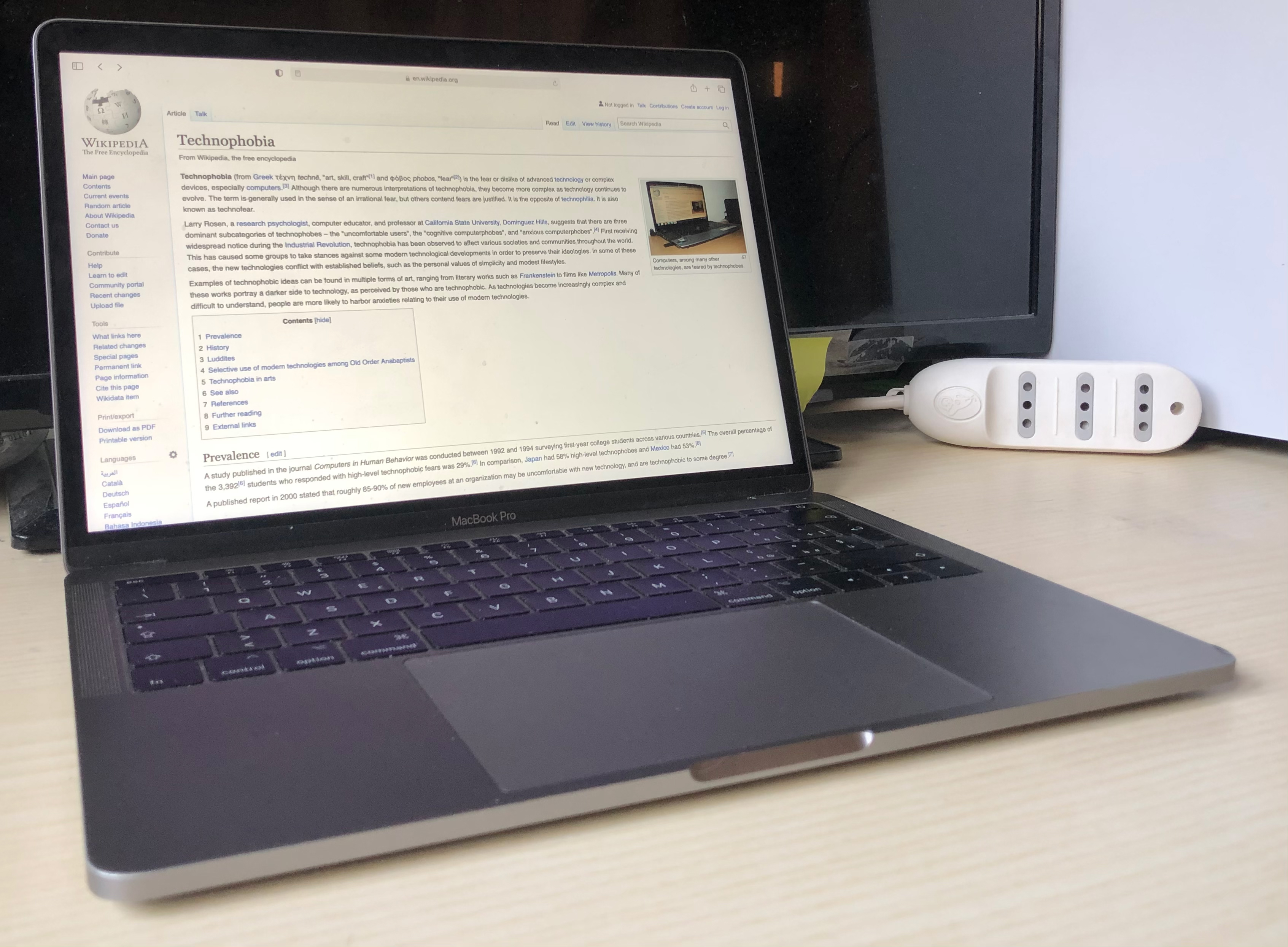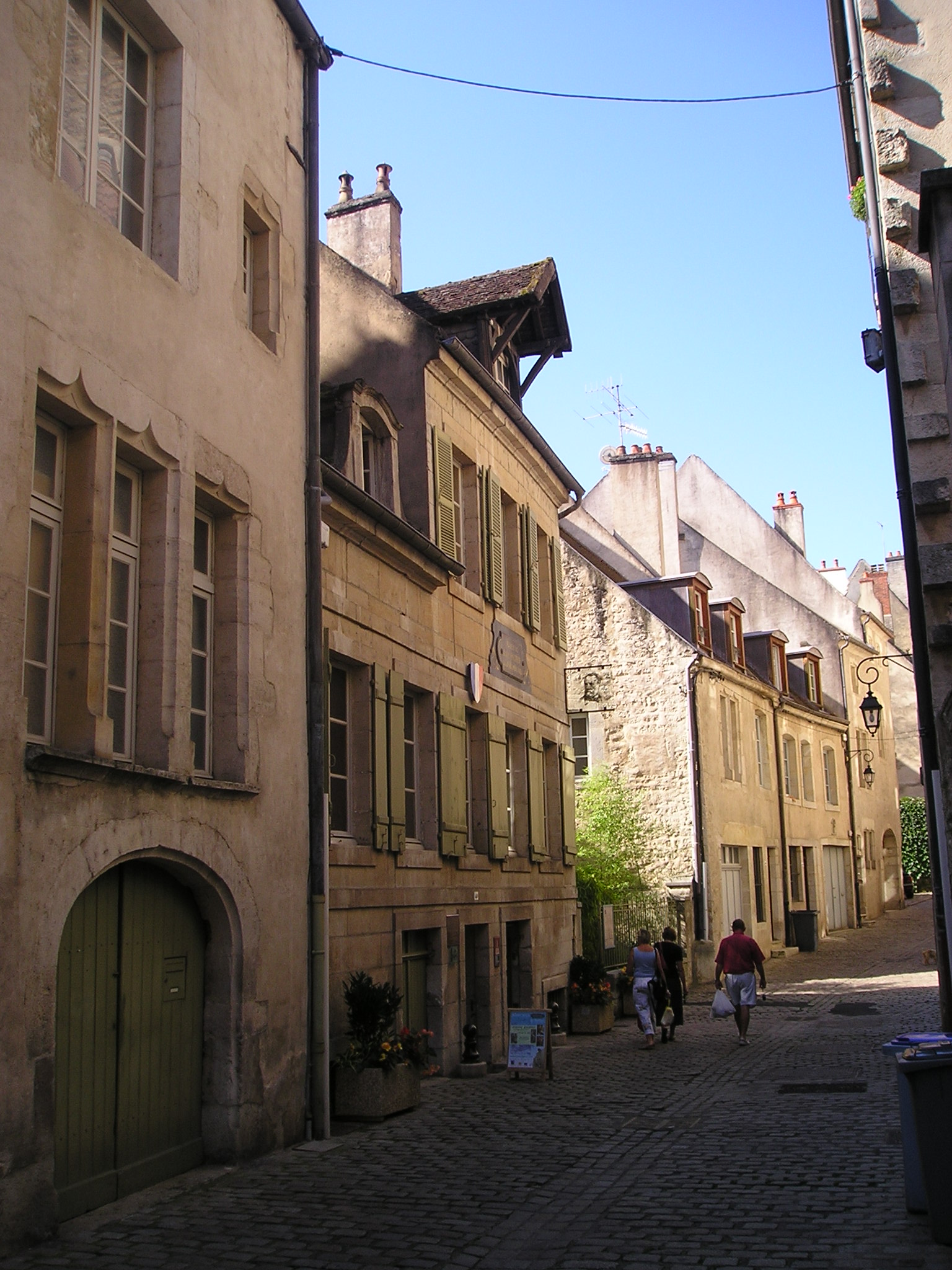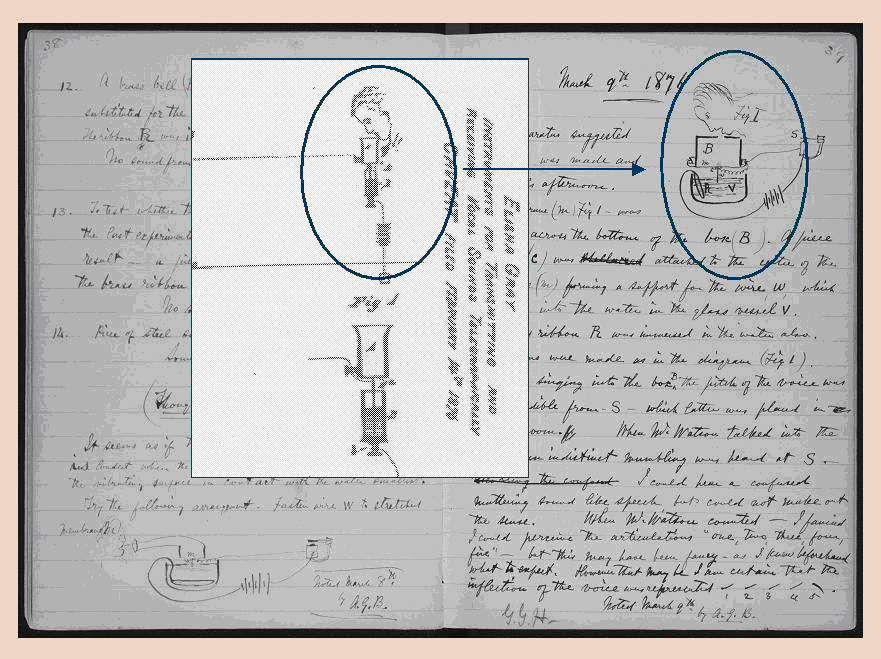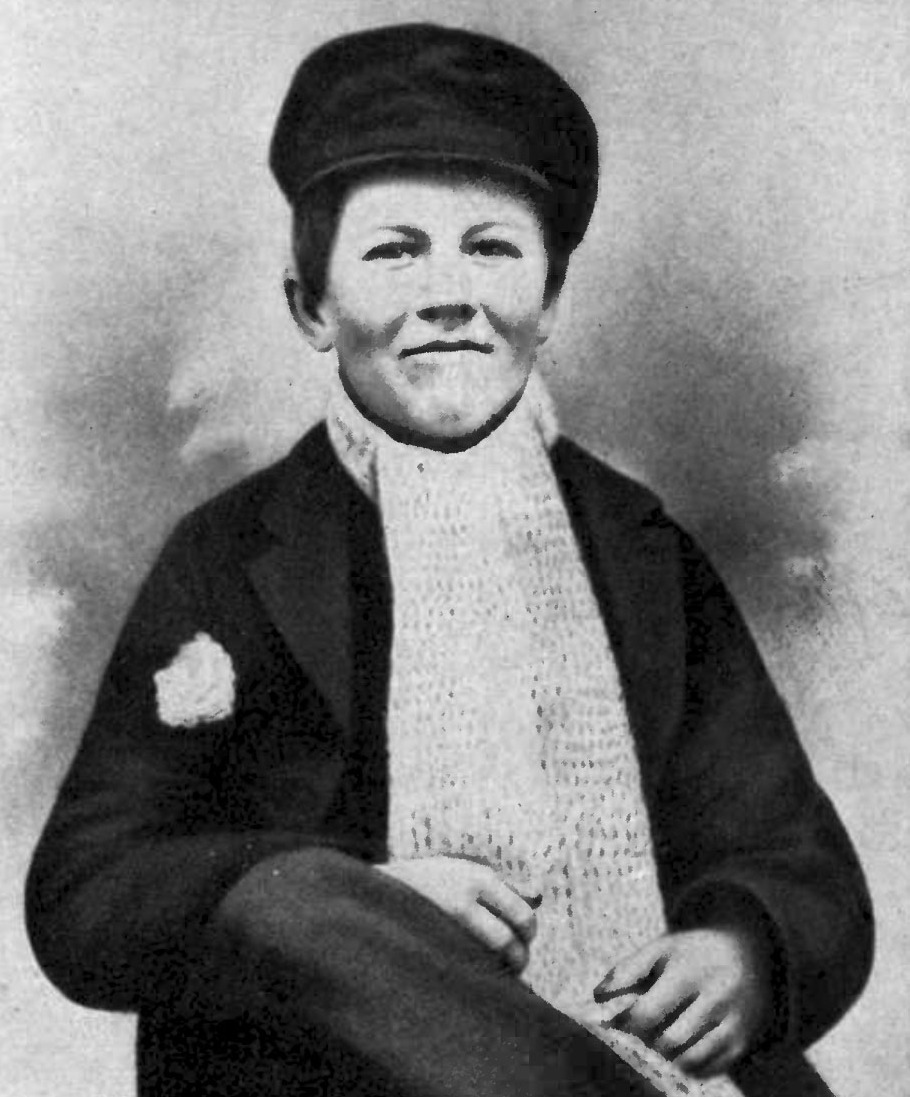|
Technophobia
Technophobia (from Greek τέχνη ''technē'', "art, skill, craft" and φόβος ''phobos'', "fear"), also known as technofear, is the fear or dislike of, or discomfort with, advanced technology or complex devices, especially personal computers, smartphones, and tablet computers. Although there are numerous interpretations of technophobia, they become more complex as technology continues to evolve. The term is generally used in the sense of an irrational fear, but others contend fears are justified. It is the opposite of technophilia. Larry Rosen, a research psychologist, computer educator, and professor at California State University, Dominguez Hills, suggests that there are three dominant subcategories of technophobes – the "uncomfortable users", the "cognitive computerphobes", and "anxious computerphobes".Gilbert, David, Liz Lee-Kelley, and Maya Barton. "Technophobia, gender influences and consumer decision-making for technology-related products." European Journal of Inno ... [...More Info...] [...Related Items...] OR: [Wikipedia] [Google] [Baidu] |
Technophilia
Technophilia (from Greek τέχνη - ''technē'', "art, skill, craft" and φίλος - ''philos'', "beloved, dear, friend") refers generally to a strong attraction for technology, especially new technologies such as personal computers, the Internet, mobile phones, and home cinema."Technophilia." The American Heritage® Dictionary of the English Language, Fourth Edition. 2003. Houghton Mifflin Company 23 Sep. 2012 http://www.thefreedictionary.com/technophilia The term is used in sociology to examine individuals' interactions with society and is contrasted with technophobia. On a psychodynamic level, technophilia generates the expression of its opposite, technophobia.Richards, Barry. "Technophobia and Technophilia." British Journal of Psychotherapy 10.2 (1993): 188–95. Print. Technophilia and technophobia are the two extremes of the relationship between technology and society. The technophile regards most or all technology positively, adopts new forms of technology enthusiasti ... [...More Info...] [...Related Items...] OR: [Wikipedia] [Google] [Baidu] |
Luddites
The Luddites were members of a 19th-century movement of English textile workers who opposed the use of certain types of automated machinery due to concerns relating to worker pay and output quality. They often destroyed the machines in organised raids. Members of the group referred to themselves as Luddites, self-described followers of " Ned Ludd", a legendary weaver whose name was used as a pseudonym in threatening letters to mill owners and government officials. The Luddite movement began in Nottingham, England, and spread to the North West and Yorkshire between 1811 and 1816. Mill and factory owners took to shooting protesters and eventually the movement was suppressed by legal and military force, which included execution and penal transportation of accused and convicted Luddites. Over time, the term has been used to refer to those opposed to the introduction of new technologies. Etymology The name Luddite () occurs in the movement's writings as early as 1811. The mo ... [...More Info...] [...Related Items...] OR: [Wikipedia] [Google] [Baidu] |
Louis Pasteur
Louis Pasteur (, ; 27 December 1822 – 28 September 1895) was a French chemist, pharmacist, and microbiologist renowned for his discoveries of the principles of vaccination, Fermentation, microbial fermentation, and pasteurization, the last of which was named after him. His research in chemistry led to remarkable breakthroughs in the understanding of the causes and preventions of diseases, which laid down the foundations of hygiene, public health and much of modern medicine. Pasteur's works are credited with saving millions of lives through the developments of vaccines for rabies vaccine, rabies and anthrax vaccine, anthrax. He is regarded as one of the founders of modern bacteriology and has been honored as the "father of bacteriology" and the "father of microbiology" (together with Robert Koch; the latter epithet also attributed to Antonie van Leeuwenhoek). Pasteur was responsible for disproving the doctrine of spontaneous generation. Under the auspices of the French Aca ... [...More Info...] [...Related Items...] OR: [Wikipedia] [Google] [Baidu] |
World War II
World War II or the Second World War (1 September 1939 – 2 September 1945) was a World war, global conflict between two coalitions: the Allies of World War II, Allies and the Axis powers. World War II by country, Nearly all of the world's countries participated, with many nations mobilising all resources in pursuit of total war. Tanks in World War II, Tanks and Air warfare of World War II, aircraft played major roles, enabling the strategic bombing of cities and delivery of the Atomic bombings of Hiroshima and Nagasaki, first and only nuclear weapons ever used in war. World War II is the List of wars by death toll, deadliest conflict in history, causing World War II casualties, the death of 70 to 85 million people, more than half of whom were civilians. Millions died in genocides, including the Holocaust, and by massacres, starvation, and disease. After the Allied victory, Allied-occupied Germany, Germany, Allied-occupied Austria, Austria, Occupation of Japan, Japan, a ... [...More Info...] [...Related Items...] OR: [Wikipedia] [Google] [Baidu] |
William Blake
William Blake (28 November 1757 – 12 August 1827) was an English poet, painter, and printmaker. Largely unrecognised during his life, Blake has become a seminal figure in the history of the Romantic poetry, poetry and visual art of the Romanticism, Romantic Age. What he called his "William Blake's prophetic books, prophetic works" were said by 20th-century critic Northrop Frye to form "what is in proportion to its merits the least read body of poetry in the English language". While he lived in London his entire life, except for three years spent in Felpham, he produced a diverse and symbolically rich collection of works, which embraced the imagination as "the body of God", or "human existence itself". Although Blake was considered mad by contemporaries for his idiosyncratic views, he came to be highly regarded by later critics and readers for his expressiveness and creativity, and for the philosophical and mystical undercurrents within his work. His paintings and poetry have ... [...More Info...] [...Related Items...] OR: [Wikipedia] [Google] [Baidu] |
William Wordsworth
William Wordsworth (7 April 177023 April 1850) was an English Romantic poetry, Romantic poet who, with Samuel Taylor Coleridge, helped to launch the Romanticism, Romantic Age in English literature with their joint publication ''Lyrical Ballads'' (1798). Wordsworth's ''masterpiece, magnum opus'' is generally considered to be ''The Prelude'', a semi-autobiographical poem of his early years that he revised and expanded a number of times. It was posthumously titled and published by his wife in the year of his death, before which it was generally known as "The Poem to Coleridge". Wordsworth was Poet Laureate of the United Kingdom, Poet Laureate from 1843 until his death from pleurisy on 23 April 1850. He remains one of the most recognizable names in English poetry and was a key figure of the Romantic poets. Early life Family and education The second of five children born to John Wordsworth and Ann Cookson, William Wordsworth was born on 7 April 1770 in what is now named Word ... [...More Info...] [...Related Items...] OR: [Wikipedia] [Google] [Baidu] |
Pastoral
The pastoral genre of literature, art, or music depicts an idealised form of the shepherd's lifestyle – herding livestock around open areas of land according to the seasons and the changing availability of water and pasture. The target audience is typically an urban one. A ''pastoral'' is a work of this genre. A piece of music in the genre is usually referred to as a pastorale. The genre is also known as bucolic, from the Greek , from , meaning a cowherd. Literature Pastoral literature in general Pastoral is a mode of literature in which the author employs various techniques to place the complex life into a simple one. Paul Alpers distinguishes pastoral as a mode rather than a genre, and he bases this distinction on the recurring attitude of power; that is to say that pastoral literature holds a humble perspective toward nature. Thus, pastoral as a mode occurs in many types of literature (poetry, drama, etc.) as well as genres (most notably the pastoral elegy) ... [...More Info...] [...Related Items...] OR: [Wikipedia] [Google] [Baidu] |
Romantic Movement
Romanticism (also known as the Romantic movement or Romantic era) was an artistic and intellectual movement that originated in Europe towards the end of the 18th century. The purpose of the movement was to advocate for the importance of subjectivity and objectivity (philosophy), subjectivity, imagination, and appreciation of nature in society and culture in response to the Age of Enlightenment and the Industrial Revolution. Romanticists rejected the social conventions of the time in favour of a moral outlook known as individualism. They argued that passion (emotion), passion and intuition were crucial to understanding the world, and that beauty is more than merely an classicism, affair of form, but rather something that evokes a strong emotional response. With this philosophical foundation, the Romanticists elevated several key themes to which they were deeply committed: a Reverence (emotion), reverence for nature and the supernatural, nostalgia, an idealization of the past as ... [...More Info...] [...Related Items...] OR: [Wikipedia] [Google] [Baidu] |
Alexander Graham Bell
Alexander Graham Bell (; born Alexander Bell; March 3, 1847 – August 2, 1922) was a Scottish-born Canadian Americans, Canadian-American inventor, scientist, and engineer who is credited with patenting the first practical telephone. He also co-founded the AT&T Corporation, American Telephone and Telegraph Company (AT&T) in 1885. Alexander Melville Bell, Bell's father, grandfather, and brother had all been associated with work on elocution and speech, and both his mother and wife were deaf, profoundly influencing Bell's life's work. His research on hearing and speech further led him to experiment with hearing devices, which eventually culminated in his being awarded the first United States patent law, U.S. patent for the telephone, on March 7, 1876. Bell considered his invention an intrusion on his real work as a scientist and refused to have a telephone in his study. Many other inventions marked Bell's later life, including ground-breaking work in Free-space optical commun ... [...More Info...] [...Related Items...] OR: [Wikipedia] [Google] [Baidu] |
Thomas Edison
Thomas Alva Edison (February11, 1847October18, 1931) was an American inventor and businessman. He developed many devices in fields such as electric power generation, mass communication, sound recording, and motion pictures. These inventions, which include the phonograph, the motion picture camera, and early versions of the electric Incandescent light bulb, light bulb, have had a widespread impact on the modern industrial society, industrialized world. He was one of the first inventors to apply the principles of organized science and teamwork to the process of invention, working with many researchers and employees. He established the first industrial research laboratory. Edison was raised in the American Midwest. Early in his career he worked as a telegraph operator, which inspired some of his earliest inventions. In 1876, he established his first laboratory facility in Menlo Park, New Jersey, where many of his early inventions were developed. He later established a botanical ... [...More Info...] [...Related Items...] OR: [Wikipedia] [Google] [Baidu] |
Nikola Tesla
Nikola Tesla (;"Tesla" . ''Random House Webster's Unabridged Dictionary''. ; 10 July 1856 – 7 January 1943) was a Serbian-American engineer, futurist, and inventor. He is known for his contributions to the design of the modern alternating current (AC) electricity supply system. Born and raised in the Austrian Empire, Tesla first studied engineering and physics in the 1870s without receiving a degree. He then gained practical experience in the early 1880s working in telephony and at Continental Edison in the new electric power industry. In 1884 he immigrated to the United States, where he became a naturalized citizen. He worked for a short time at the Edison Machine Works in New York City before he struck out on his own. With the help of partners to finance and market his ideas, Tesla set up laboratories and companies in New York to ... [...More Info...] [...Related Items...] OR: [Wikipedia] [Google] [Baidu] |
Marie Curie
Maria Salomea Skłodowska-Curie (; ; 7 November 1867 – 4 July 1934), known simply as Marie Curie ( ; ), was a Polish and naturalised-French physicist and chemist who conducted pioneering research on radioactivity. She was List of female Nobel laureates, the first woman to win a Nobel Prize, the first person Nobel Prize#Multiple laureates, to win a Nobel Prize twice, and the only person to win a Nobel Prize in two scientific fields. Her husband, Pierre Curie, was a co-winner of her first Nobel Prize, making them the Nobel Prize#Statistics, first married couple to win the Nobel Prize and launching the Nobel Prize#Family laureates, Curie family legacy of five Nobel Prizes. She was, in 1906, the first woman to become a professor at the University of Paris. She was born in Warsaw, in what was then the Congress Poland, Kingdom of Poland, part of the Russian Empire. She studied at Warsaw's clandestine Flying University and began her practical scientific training in Warsaw. In 1 ... [...More Info...] [...Related Items...] OR: [Wikipedia] [Google] [Baidu] |










